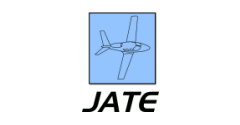Abstract
This paper reports on the use of a novel two-stage approach for assessing the efficiency of 30 major Nigerian airports from 2003 to 2013 based on bootstrapped data envelopment analysis (DEA) and censored quantile regression. In the first stage, bootstrapped efficiency estimates are computed. They enable bias correction and testing for significant differences in efficiency levels among airports. Subsequently, bootstrapped DEA results are combined with censored quantile regression to assess the impact of contextual variables—related to the airports’ ownership, location, and network connectivity—on different efficiency percentiles. The results reveal that the intensity of significant impacts regarding airports’ contextual variables may vary between high-/low-efficiency airports. Policy implications are derived accordingly.
Recommended Citation
Nwaogbe, Obioma Reuben; Wanke, Peter; Ogwude, Innocent Chukwuka; Barros, Carlos Pestana; and Azad, Abul Kalam
(2018)
"Efficiency Driver in Nigerian Airports: A Bootstrap DEA–Censored Quantile Regression Approach,"
Journal of Aviation Technology and Engineering:
Vol. 7:
Iss.
2, Article 2.
Available at: https://doi.org/10.7771/2159-6670.1171


